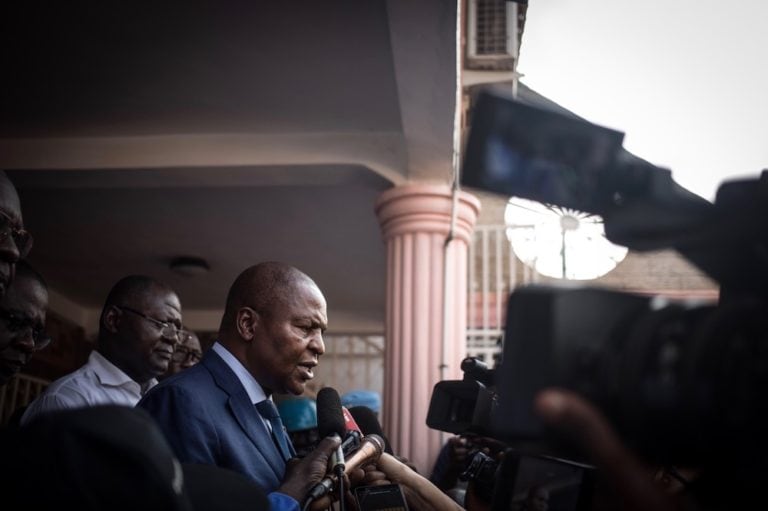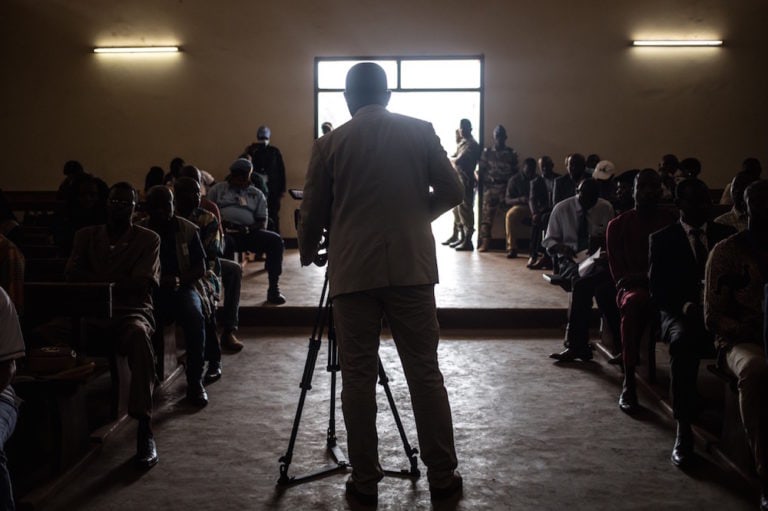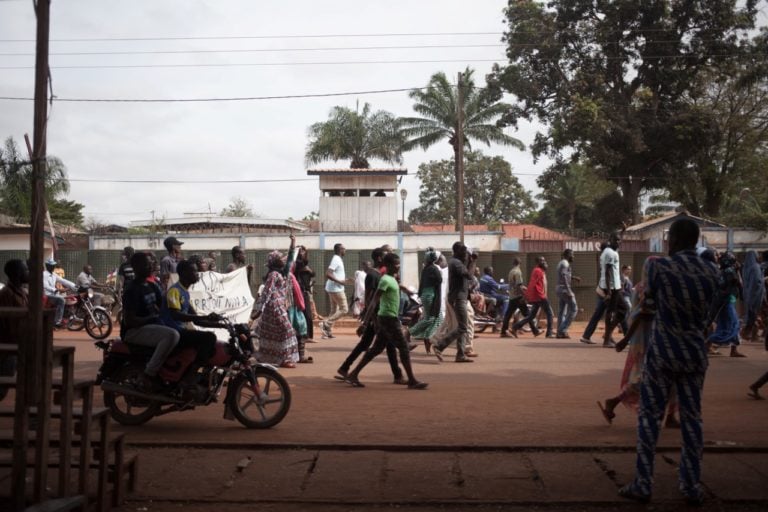(RSF/IFEX) – RSF has hailed a 30 September 2004 announcement by the Central African Republic Association of Private and Independent Newspaper Publishers (Groupement des éditeurs de la presse privée indépendante de Centrafrique, GEPPIC) saying it will no longer publish newspapers on Fridays, beginning 1 October, until President François Bozizé’s government keeps a promise to decriminalise […]
(RSF/IFEX) – RSF has hailed a 30 September 2004 announcement by the Central African Republic Association of Private and Independent Newspaper Publishers (Groupement des éditeurs de la presse privée indépendante de Centrafrique, GEPPIC) saying it will no longer publish newspapers on Fridays, beginning 1 October, until President François Bozizé’s government keeps a promise to decriminalise press offences.
“We have to support a peaceful initiative that calls on a country’s president to keep his word,” RSF said. “If the Central African Republic amended its press code and stopped throwing journalists in prison, it would join the circle of African countries that respect the right to inform.”
The decriminalisation of press offences was one of the pledges made by Bozizé when he took power on 15 March 2003. But these “pious vows” were never followed by concrete action, a GEPPIC statement said. Instead, “six journalists have had to endure imprisonment in police or gendarmerie cells, or in the notorious N’garagba prison,” the statement added.
The most recent case was that of Maka Gbossokotto, publication director of the independent daily “Le Citoyen” and RSF’s correspondent in the Central African Republic. A Bangui court fined Gbossokotto 500,000 CFA francs (approx. US$920; 750 euros) and gave him a one-year suspended sentence on 8 August after he spent a month in custody over a libel action brought by former national power utility chief Jean-Serge Wafio. Wafio was fired by Bozizé for mismanagement after he was accused of embezzlement in several articles in “Le Citoyen” (see IFEX alerts of 9 August, 21 and 9 July 2004).


